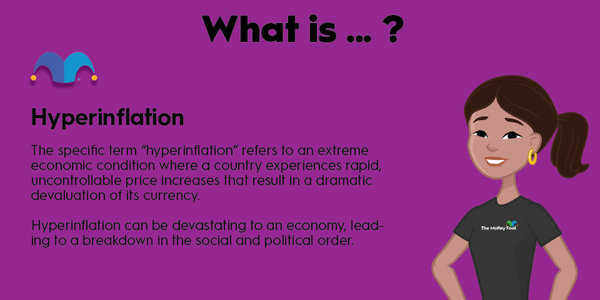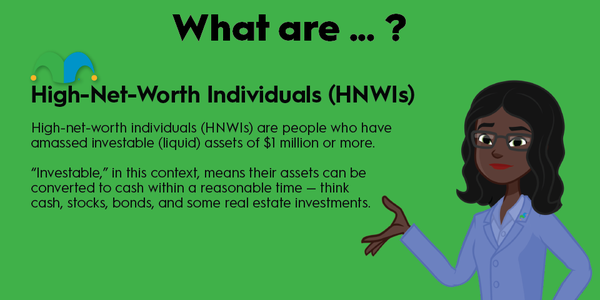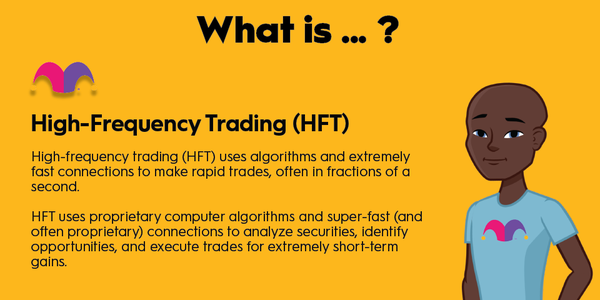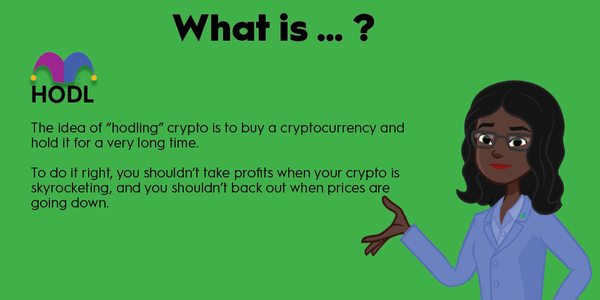Hoge Finance (CRYPTO:HOGE) is a meme token that charges a small tax on each transaction to reward its wallet holders. It was inspired by Dogecoin (DOGE 0.43%), but it has its own twist in that it's primarily focused on decentralized finance (DeFi).

Like other meme tokens, Hoge Finance isn't one you should take very seriously. The white paper claims that "what Mickey Mouse did for the Disney (DIS -1.01%) brand, HOGE will do for Ethereum (ETH 0.77%) and DeFi." Just for good measure, the team is also planning the Hoge Space Program to send satellites (and memes) into space.
Despite the silly nature of Hoge Finance, it was up more than 130,000% at one point. In this guide, we'll cover how it works and why you should avoid it.
What makes Hoge Finance unique?
What makes Hoge Finance unique?
Hoge Finance is a deflationary token, so the supply gradually decreases over time. It does this through a 2% tax on every transaction. A portion of the tax is burned (destroyed), and the rest is redistributed to everyone with HOGE tokens in their crypto wallets.
The tokenomics are designed to benefit HOGE holders. By having HOGE tokens in your wallet, you receive a cut of every transaction automatically. The ever-decreasing token supply could theoretically increase the price but only if Hoge Finance is able to build demand.
It’s worth noting that Hoge Finance is far from the only deflationary token out there. This type of cryptocurrency became extremely common in 2021, with many projects charging taxes on every transaction. The only real difference between them is how much they charge and the amount they redistribute to token holders.
Hoge Finance offers non-fungible tokens (NFTs). They're available on OpenSea, one of the largest NFT marketplaces. In addition, Hoge Finance offers HogeMint, which allows members of the community to mint their own NFTs during limited time events.
There are no deep-pocketed "whale investors." A decentralized autonomous organization (DAO) involves HOGE holders in governance. Hoge has implemented cross-blockchain bridges that allow cheaper transactions, including a bridge to the Gnosis Chain (formerly known as the xDai Chain). HOGE is also one of the only meme tokens that has gone to the effort of having a Certik audit conducted on its code.
And, as one final unique feature, the project seems to be serious about its intention to launch a mini-satellite to generate NFTs in space since it supports an open-source initiative to study space data security. Hoge's head of technology, Joseph Niehaus, holds a Ph.D. in atmospheric science; he and the Hoge Aerospace Institute (HAI) have partnered with the College of Charleston in a space exploration program.
Time will tell whether these unique pursuits will pay off with a spike in popularity. Just one viral celebrity "NFT from space" meme could boost this token's trajectory.
Where Hoge Finance came from
Where Hoge Finance came from
A team of developers created Hoge Finance and launched it on Feb. 7, 2021. The total supply was 1 trillion HOGE tokens, but 50% of these were burned at launch. There was no team allocation of HOGE tokens, and everyone who purchased it did so on the open market.
Although Hoge Finance's developers were originally anonymous, four of them later chose to reveal their identities through "self-doxxing" announcements. They are:
- Joseph Niehaus, Head of Technology and NFT Programs
- Zach Issa Al-Kharusy, Head of Talent and Culture
- Marc-Antoine Belair, Head of Operations
- Florin Podaru, Head of Business
Hoge Finance is a community-based project, and all the developers are volunteers who work for free. There is no developer wallet used for funding. A nonprofit organization in Switzerland, Hoge Association, manages the brand by executing partnerships and agreements on behalf of the community.
How Hoge Finance works
How Hoge Finance works
HOGE is an ERC20 token built on the Ethereum blockchain. Every transaction has a 2% tax. For example, if you transfer 100,000 HOGE, then 2,000 would be deducted.
The tax is split into two pieces. Here's how they're currently used:
- 1% of each transaction is burned. That means the crypto tokens are sent to a burn wallet (a non-recoverable wallet address). Since no one can access this wallet, the tokens are effectively removed from circulation.
- 1% of each transaction is redistributed to wallet holders. This includes everyone who holds any HOGE in their crypto wallet. Note that it doesn't include those who have HOGE stored on crypto exchanges.
When Hoge Finance launched, it burned 50% of the maximum token supply by sending 500 billion HOGE to the burn wallet. Once 70% of the total supply has been burned, the distribution of the 2% tax will change:
- 1.4% of each transaction will be burned.
- 0.6% of each transaction will be redistributed to wallet holders.
Partnerships
Partnerships
Charitable giving is part of Hoge Finance's mission. As of September 2021, the Hoge community had raised more than $60,000 for nonprofit organizations, including:
- St. Jude Children's Research Hospital
- The Humane Society
- International Animal Rescue
- English Bulldog Rescue of Ontario
- Patriot Paws
- First Responders Children's Foundation
Can I make passive income with Hoge Finance?
Can I make passive income with Hoge Finance?
Passive income is automatic with Hoge Finance as long as you store your HOGE tokens in a self-custodied crypto wallet. If you do, you'll receive your share of the 1% cut of every transaction reserved for HOGE token holders.
While easy passive income sounds great, keep in mind that you're getting paid in HOGE tokens. If the price drops after you buy it, then you'll still lose money. And, considering this is a meme token with no real utility, there's a good chance it will decrease in value as time goes on.
Unique risks
Unique risks
HOGE does not offer much to distinguish itself from many other meme tokens and cryptocurrencies that charge transaction fees. These projects are a dime a dozen. Since they don't do anything unique, they all effectively end up relying on popularity.
The main hook with Hoge Finance is that you earn tokens for being a wallet holder. But that works against it as well. If you lose 2% every time you do something with your HOGE tokens, what purpose do they serve? The only way you benefit is if other people buy in and make transactions.
Is Hoge Finance a good investment?
Is Hoge Finance a good investment?
Hoge Finance is a poor investment, and most buyers will probably end up losing money. When a crypto project is more focused on memes than on problems it can solve, that's a sign you should avoid it.
The Hoge Finance white paper does lay out some lofty (and laughable) goals, such as introducing the benefits of Ethereum's network to the mainstream. It's hard to imagine a world where Ethereum, one of the most well-known cryptocurrencies, would need Hoge Finance for this.
If you like Ethereum, you're better off investing in Ethereum. There's also Bitcoin (BTC 0.66%), other top coins with actual use cases, and cryptocurrency stocks for investors who want to add crypto to their portfolios. These all have some degree of risk, which is inherent to the crypto market, but they're much safer choices than Hoge Finance.
Related investing topics
How to buy Hoge Finance
How to buy Hoge Finance
If you really want to join the Hoge community, you can trade for Hoge Finance on Uniswap (UNI 2.88%), a decentralized crypto exchange. You'll first need to buy another type of cryptocurrency, such as Ethereum, and transfer it to a crypto wallet. Then you can connect your wallet to Uniswap and trade for HOGE tokens.
Because Hoge Finance is one of the smaller cryptocurrencies, it's not available on any U.S.-headquartered crypto exchanges. That makes the buying process more complicated, but, considering the likelihood of losing money on Hoge Finance, that's probably a good thing.

















